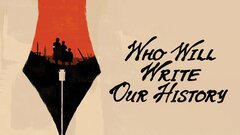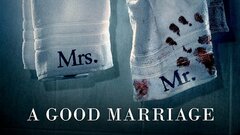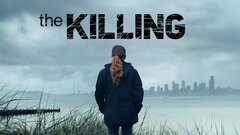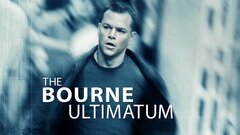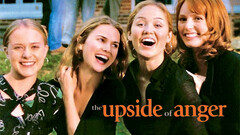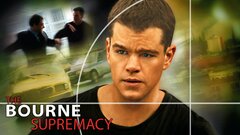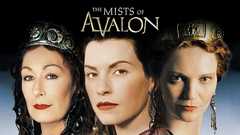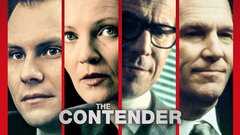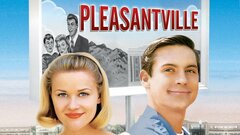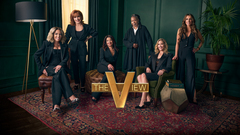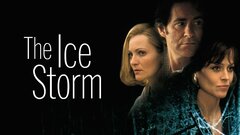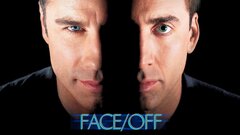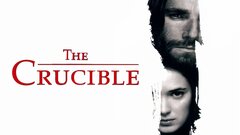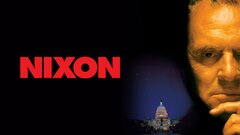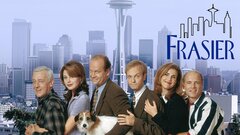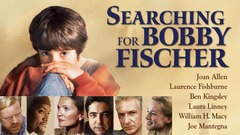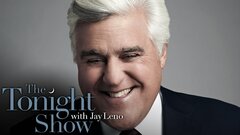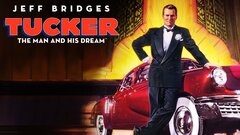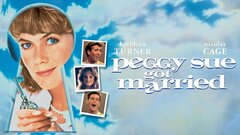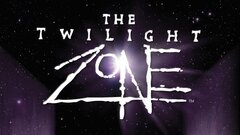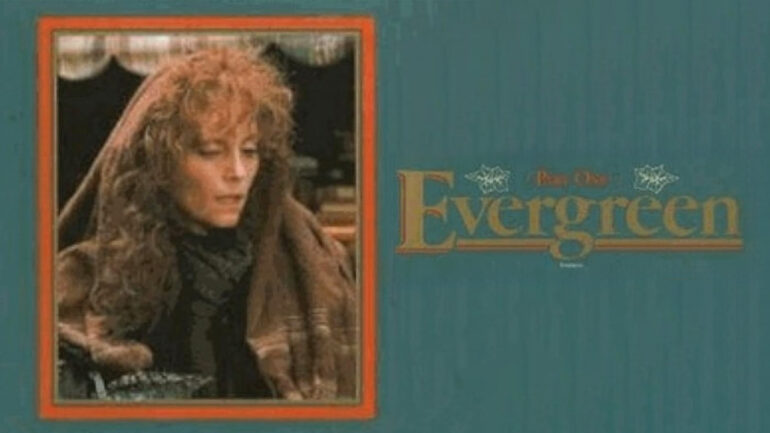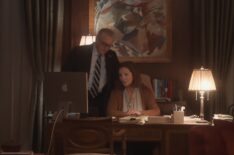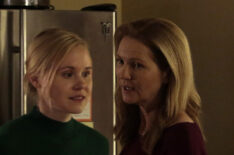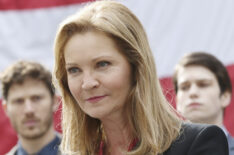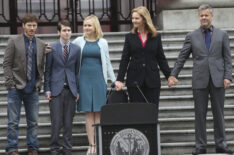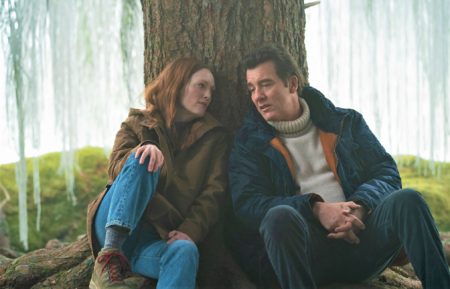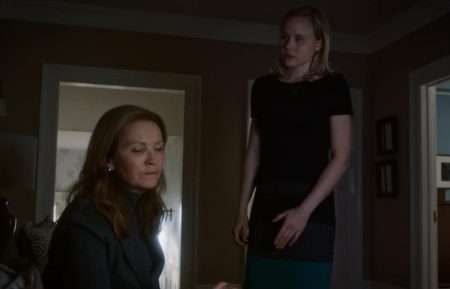For the first part of her distinguished career, Oscar-nominated actress Joan Allen struggled to make herself a household name despite delivering strong, nuanced and critically-acclaimed performances on stage and screen. After quietly stalking the background in films like "Manhunter" (1986), "Tucker: The Man and His Dream" (1988), and "Searching for Bobby Fischer" (1993), Allen exploded onto the scene with a stunning portrayal of former first lady Pat Nixon in Oliver Stone's "Nixon" (1995).
Allen's sympathetic and complex turn opened doors to other opportunities to play strong, but emotionally withdrawn women, as in "The Crucible" (1996) and "Pleasantville" (1998). But it was her performance in "The Contender" (2000), as a U.S. senator on the verge of the vice presidency who is hammered for an alleged sex scandal, that vaulted her from supporting status to full-fledged leading lady. From there, she entered blockbuster territory with a supporting turn as a wary CIA officer in "The Bourne Supremacy" (2004), a role she reprised for sequels in 2007 and 2012, while earning more plaudits for "The Upside of Anger" (2005), "Georgia O'Keefe" (Lifetime, 2009) and "Room" (2015).
With these hailed performances, Allen solidified a long, but steady climb to become one of Hollywood's most respected and talented actresses.
Born on Aug. 20, 1956 in Rochelle, IL, Allen was raised the youngest of four surviving children of her father, Jeff, a gas station operator, and her mother, Dorothy, a homemaker. An almost pathologically shy child, Allen eventually found the courage to come out of her shell when she discovered acting. Theater allowed her to be outrageous, express sorrow and anger - in short, to be anything but the good Midwestern girl of her upbringing.
After graduating from Rochelle Township High School, she attended Eastern Illinois University, where she made the fortuitous acquaintance of John Malkovich. Allen left EIU for Northern Illinois University, where she earned her bachelor's in theater in 1976. Not one to pound on doors for an audition, Allen was lucky enough to be remembered by Malkovich, who invited her to Chicago to join the fledgling Steppenwolf Theatre Company. Working days as a secretary to pay the rent, Allen performed at night alongside the likes of Gary Sinise, John Mahoney, Terry Kinney, Laurie Metcalf and Malkovich. At Steppenwolf, Allen developed a restrained acting style that enabled her to disappear into her parts, while amplifying the subtext of what was on the printed page - a skill that later enabled her to elevate herself above other actresses once she made the transition to the big screen.
After working her way through the plays of Wallace Shawn, Caryl Churchill, Athol Fugard and Anton Chekhov at Steppenwolf's home office, Allen went to New York in a Steppenwolf production of C.P. Taylor's "And a Nightingale Sang" (1983), acting opposite future husband Peter Friedman. She appeared in the Public Theatre presentation of Christopher Durang's "The Marriage of Bette and Boo" (1985), and by the time she won a Tony for her Broadway debut opposite Malkovich in Lanford Wilson's "Burn This" (1987), her days working as a secretary were far behind her.
The following year, she was back on the Great White Way with Friedman, playing the appealing feminist exemplar Heidi Holland in Wendy Wasserstein's Pulitzer Prize-winning "The Heidi Chronicles" (1988), garnering another Tony nomination. Recognition for her stage work eventually opened the doors in Hollywood, and Allen made her feature debut with a small role in the comedy thriller, "Compromising Positions" (1985), followed by her first television appearance in the three-part miniseries, "Evergreen" (NBC, 1985).
Allen's star gradually, but steadily rose with memorable turns as a blind girl who surprisingly humanizes a killer in Michael Mann's underrated "Manhunter" (1986) - the first movie to introduce Hannibal Lecter - and as one of Kathleen Turner's high school friends in Francis Ford Coppola's "Peggy Sue Got Married" (1986). She also enjoyed high profile television roles in the "American Playhouse" presentation of Arthur Miller's "All My Sons" (PBS, 1987) and the "Hallmark Hall of Fame" production "The Room Upstairs" (CBS, 1987), before finding her niche as a wife opposite the Jeff Bridges boys in "Tucker: The Man and His Dream" (1988).
After starring opposite Beau Bridges in "Without Warning: The James Brady Story" (HBO, 1991), Allen played Liam Neeson's ball and chain - the bitter and withered Zeena Frome - in "Ethan Frome" (1993), and the more sympathetic wife and mother of the young chess prodigy in "Searching for Bobby Fischer" (1993). But neither these nor lesser roles as mothers in "Josh and S.A.M." (1993) and "Mad Love" (1995) significantly elevated her standing.
Allen made her breakthrough with an on-target performance as the long-suffering Pat Nixon in Oliver Stone's Shakespearean political drama, "Nixon" (1995). Not known as a women's director, Stone worked hard with the actress to delve into the character's humanity to cull a fine performance, which was aided immensely by Allen's striking resemblance to the former first lady. Allen responded with a sympathetic, subtle turn that earned her an Academy Award nomination for Best Supporting Actress.
She was once again the moral center in the adaptation of Arthur Miller's "The Crucible" (1996), garnering a second consecutive Oscar nod as Best Supporting Actress for her performances as the unforgiving wife of John Proctor (Daniel Day-Lewis), a man accused of witchcraft during the Salem witch trials. Her spouse-heavy resume then landed her a supporting role as the disturbed wife of an obsessive FBI agent (John Travolta) on the hunt for a sadistic terrorist (Nicolas Cage) in "Face/Off" (1997). She also received wide critical acclaim playing a dissatisfied wife and mother in "The Ice Storm" (1997), director Ang Lee's stark, complex and moving look at American suburban mores in the 1970s.
Having cornered the market on woebegone, tortured wives, Allen began to break the mold with "Pleasantville" (1998). Though her June Cleaver-like black-and-white TV mom was certainly repressed, she shrugged off her shackles to reveal a colorful inner life, awakening a long dormant creativity and sexuality. She rejoined "Pleasantville" co-star Jeff Daniels as a suburbanite couple in a brittle black comedy about guns, "It's the Rage" (1999), but finally left suburban housewifery behind with her turn as a slain Irish journalist Veronica Guerin in the fictionalized biopic, "Though the Sky Falls" (2000).
Allen gave perhaps her strongest and most widely-hailed performance in "The Contender" (2000), playing a senator running for vice president who suddenly becomes tainted by a sex scandal that allegedly occurred when she was in college. Despite the film's overwrought melodramatics and disappointing finale, Allen was the perfect choice to play a woman who refuses to back down to public pressure, even if it means losing the chance to make history. The actress earned her third Oscar nod and first for Best Actress in a Leading Role. In 2002, Allen was nominated for an Emmy for her performance as Morgause in the television miniseries "The Mists of Avalon" (TNT), a feminist reimaging of the Arthurian legends from the perspective of the women who yielded power behind the throne.
She made a most welcome return to the big screen in the effectively emotional adaptation of the best-selling novel "The Notebook" (2004), delivering a complex and nuanced turn as an upper class mother who disapproves of her daughter's (Rachel McAdams) relationship with a sweet-natured, but poor small town man (Ryan Gosling). She next played a cool, über-efficient CIA operative on the trail of the elusive Jason Bourne (Matt Damon) in the satisfying sequel "The Bourne Supremacy" (2004).
Allen was uniformly praised for her convincing, edgy turn in writer-director Mike Binder's seriocomic "The Upside of Anger" (2005), playing an abandoned suburban wife who shares her dilemmas and dramas with her four daughters and an old family friend (Kevin Costner) who may have been the right man for her all along. In British filmmaker Sally Potter's romantic drama, "Yes" (2005), Allen played a Belfast-born microbiologist married to a prominent British politician (Sam Neill). With a marriage plagued with quarreling and infidelity, she enters into a passionate love affair with a Lebanese surgeon (Simon Abkarian) incognito in London as a restaurant cook.
Vibrant and daring, "Yes" was both a love story and a political commentary on the pain and rage brought on by the conflict between the West and the Middle East. Some critics, however, were turned off by the dialogue's iambic pentameter. Allen reprised her "Bourne" role for the third installment, "The Bourne Ultimatum" (2007), widely considered to be the best of the series. Back on the small screen, Allen was cast to play famed 20th century American artist, Georgia O'Keefe, in the biographical drama, "O'Keefe" (HBO, 2009).
Allen received strong critical kudos for her performance, earning nominations at both the Golden Globes and Screen Actors Guild awards, as well as an Emmy Award nod for Outstanding Lead Actress in a Miniseries or a Movie. Following a brief lull from the screen, Allen returned to television for an episode of the short-lived David Milch series, "Luck" (HBO, 2011-12) and reprised Pamela Landy - now a deputy director at CIA - for the fourth installment to the popular franchise, "The Bourne Legacy" (2012), which starred Jeremy Renner as a black ops agent targeted for termination.
Allen lent her gravitas to the final season of cable mystery "The Killing" (AMC/Netflix 2011-14) before co-starring in critically-acclaimed drama "Room" (2015) opposite Brie Larson. The following year, Allen starred in the short-lived drama "The Family" (ABC 2016).


